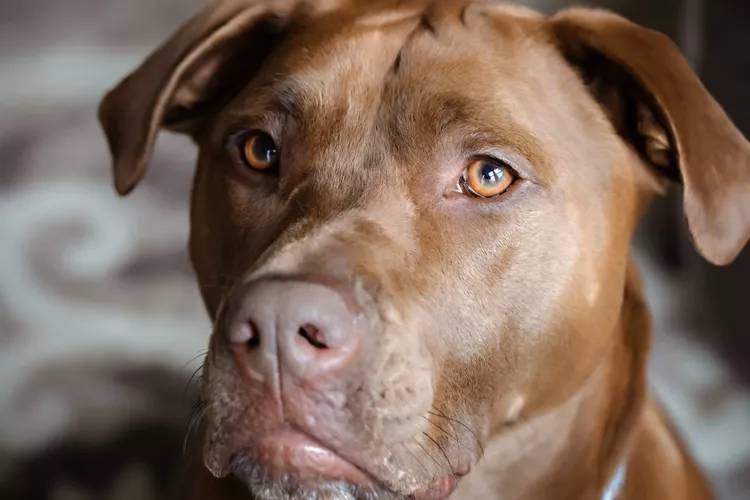
Our pups might be fine after eating a couple slices, but dogs shouldn't eat pickles because they're made with ingredients like garlic that can make them sick.
That's according to The Vets' Alejandro Caos, DVM. Your dog might be no worse for wear after eating a piece of pickle, but there's no reason to risk it. Especially when you have other, better options.
"My advice would be: Forget the pickling altogether," Caos says. "Just give cucumbers."
Here's what else you need to know about dogs eating pickles:
We make pickles by soaking cucumbers in a liquid compound and adding spices, and that's why dogs shouldn't eat them. We love what gives the pickles flavor, but those additives can really endanger our dogs.
Top of the list? Onions and garlic, two ingredients you'll find in plenty of pickle recipes. They're both Allium species, which are toxic to dogs and can cause anemia. Anemia occurs when dogs' blood lacks red blood cells or hemoglobin. Caos also warns that the Allium plants' toxicity can also attack your dogs' kidneys.
Then you have all the other ingredients like vinegar, cinnamon, sugar, and plenty of salt. In small amounts—especially what ends up on a single pickle slice or spear—these ingredients probably won't hurt your dog, but they're definitely not healthy. (It doesn't matter if it's a bread and butter pickle, dill pickle, or sour pickle. Keep them all clear of your dog.)
"Those herbs and those spices, those can also be detrimental to their health," Caos says.
These additives also pose additional dangers to dogs already dealing with a health issue like pancreatitis or obesity. In particular, too much sodium can exacerbate underlying heart disease, high blood pressure, or dehydration. If a dog eats a large amount of pickles in a short period of time, they can develop hypernatremia, or high blood sodium levels. Hypernatremia can lead to vomiting, loss of balance, and seizures.
Pickles are not good for dogs, but your pup snagging a piece off the counter probably isn't going to hurt them, Caos says. That's especially true for larger dogs who eat smaller pieces of pickle, thanks to their greater digestive fortitude. So don't panic.
As you keep an eye on your dogs, look for signs that they might be dealing with a reaction to the pickle's toxicity. Those include:
If you see any of those signs, it's a good idea to call your veterinarian and schedule a visit. Caos also recommends the ASPCA Poison Control Center if you'd like an expert to consult you over the phone.
Remember, dogs in most cases will be able to eat pickles without any issues. They just shouldn't eat them as a precaution.
Pre-pickled pickles—cucumbers—are a much better treat for your dog, Caos says. The low-calorie fruits contain fiber and tons of water, making them excellent snacks for overweight dogs who don't need any more treats.
But you should still consult with your veterinarian before introducing a new food into your dog's diet. Our pups should be getting most of their daily nutrition from their regular dog food, and you don't want to disrupt that.
Plus, each dog reacts to new food differently, so you'll want to start small, only giving your dogs teensy amounts of cucumber (or a different vegetable) to begin.
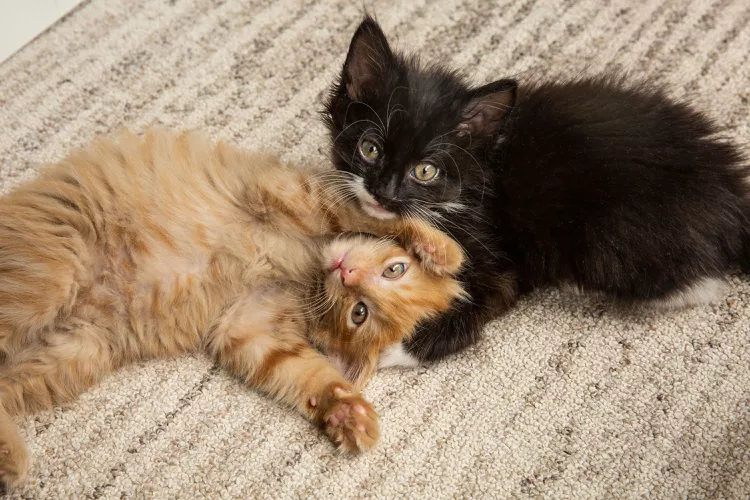
Why Two Kittens Are Better Than One
There are benefits of adopting two kittens, such as more feasible training and companionship between them.
Everything You Need to Know About Raising Your First Cat
Whether you are thinking about getting a cat or just adopted your first one, these are the things to know to make your relationship a lasting one.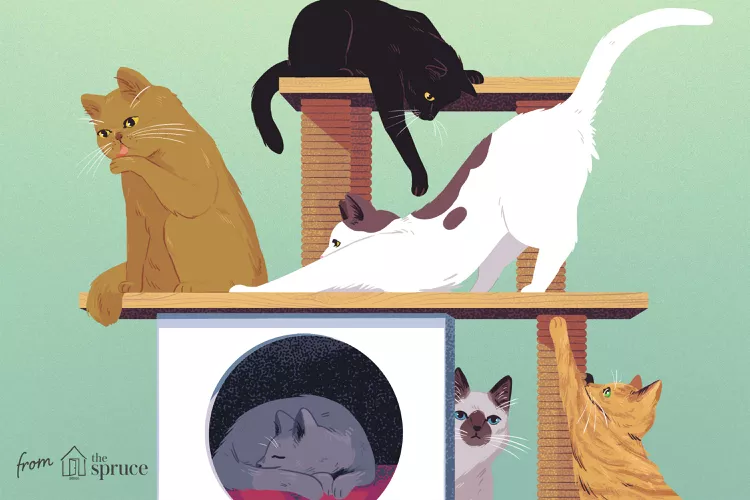
How Can I Tell the Sex of a Cat?
Telling male and female cats apart can be difficult for those who don't know what they're looking for. Here are helpful tips to discover their sex.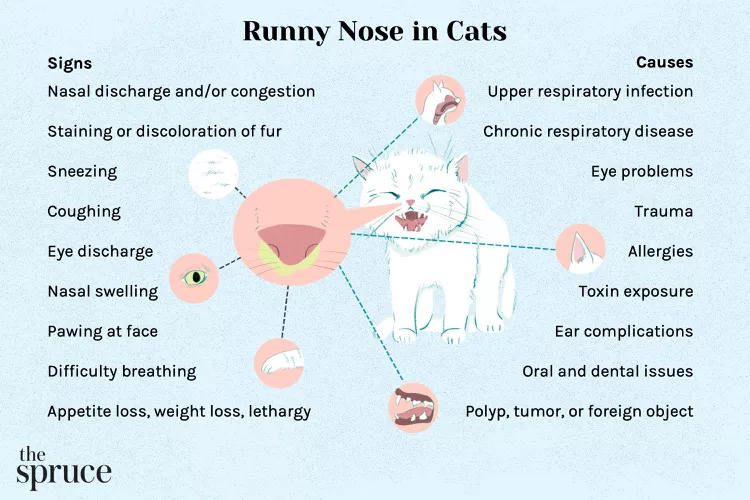
Runny Nose in Cats: Causes and Treatment
Cats get runny noses due to upper respiratory issues, but many conditions can cause this. Learn the causes of runny noses in cats and the associated signs. Find out how vets diagnose and treat cats with runny noses.
How Long Can You Safely Leave Canned Cat Food Out?
You cannot safely leave canned cat food out all day. Twenty to 30 minutes is the max, so give smaller portions and reheat food for later feedings.
Meat Byproducts in Cat Food
Most cat experts recommend premium brands of cat food that avoid ingredients like byproducts and chicken meal. Learn what to look for on the label.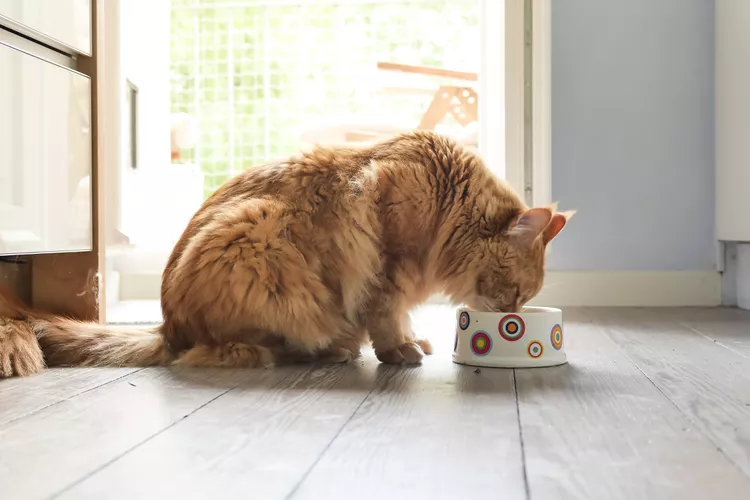
How Much Wet Food to Feed a Cat Every Day
The amount of wet food your cat needs depends on factors such as age, weight, body condition, and lifestyle. Learn how much wet food to feed your cat.
Taurine for Cats
Taurine is an essential animal protein in your cat's diet. Learn more about the various ways it supports your feline's body.
The Different Types of Pet-Friendly Workplaces
Discover the different types of pet-friendly workplaces and the benefits they offer employees. Learn how to create a pet-friendly workplace and the best practices for pet owners.
8 Halloween Safety Tips for Pets
The spooky holiday can be overstimulating and even dangerous for pets. Here's how to avoid the problems caused by toxic candy and incessant doorbells.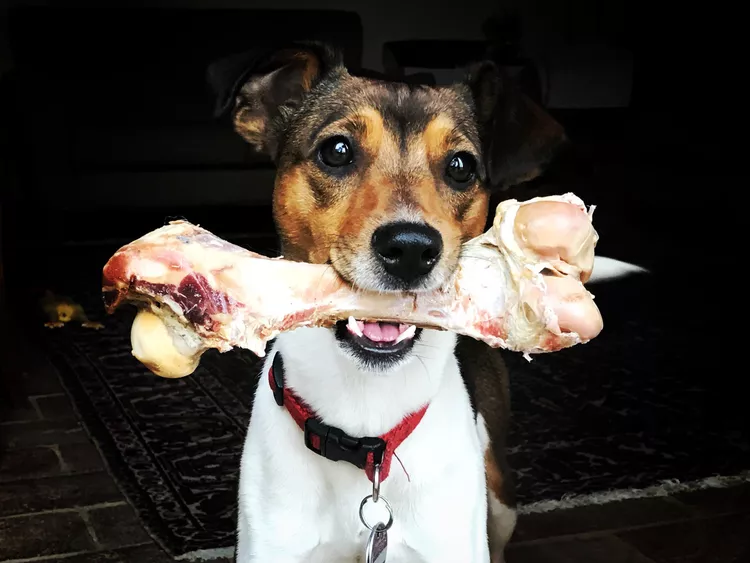
Why You Should Keep Cooked Bones Away From Your Dog This Holiday Season
People should be aware of the dangers of cooked bones, especially around the holidays when they might be more accessible to your pup.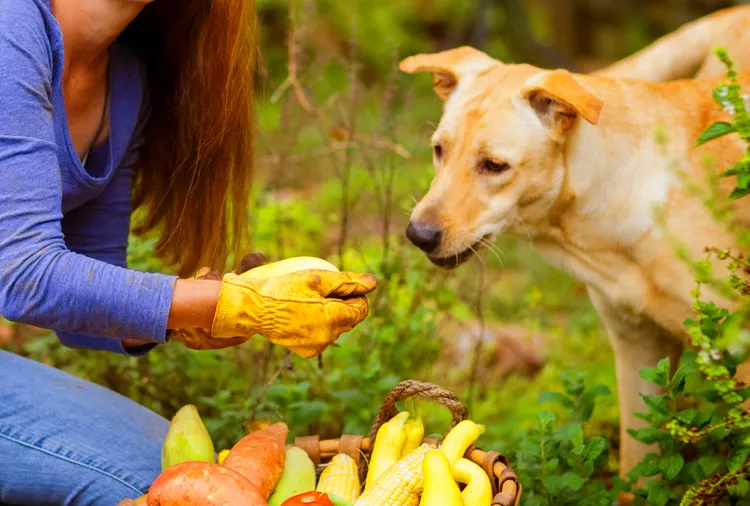
Can Dogs Eat Squash? Here's What a A Vet Thinks
Dogs can safely eat squash as long as it's prepared correctly. Find out how to properly feed this versatile fruit to your dog.
16 Small Cat Breeds That Are Petite Purring Machines
Small cat breeds like the Singapura and munchkin may be smaller than an average housecat, but they leave a giant imprint on your heart.
10 Best Cats With Big Ears
Cats with big ears often look extra endearing. Check out some common big-eared cats, including the Abyssinian, Devon Rex, Siamese, Sphynx, and more.
Javanese (Colorpoint Longhair): Cat Breed Profile, Characteristics & Care
The Javanese is a semi-longhaired, color-pointed cat of Siamese type. They are related to the Siamese, Colorpoint Shorthair, and Balinese breeds.
How to Stop Aggression in Dogs
Dog aggression can be a serious behavior issue for pet owners. Learn how to stop aggression in dogs before someone gets hurt.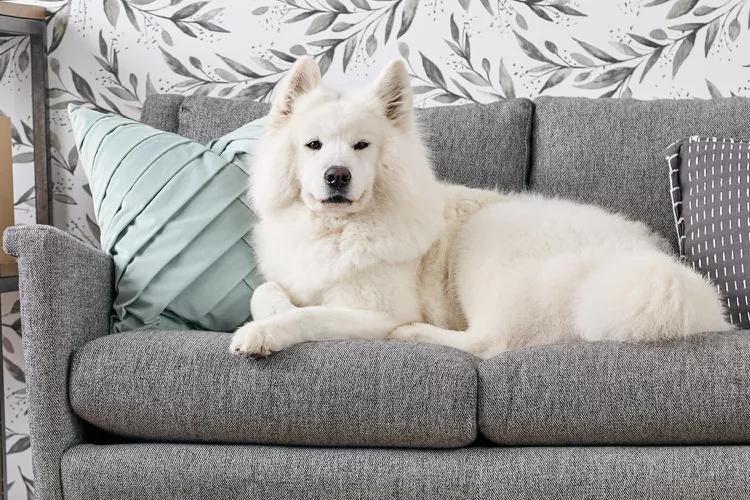
Should Dogs Be Allowed on Furniture?
Should you let your dog on the couch or in the bed with you? Are there any reasons we should not let dogs on the furniture? Here's what to know.
Why Do Dogs Eat Rocks?
One of the most common non-food items for dogs to eat are rocks. Here's what to know about why dogs eat them and how can you stop your dog from eating rocks.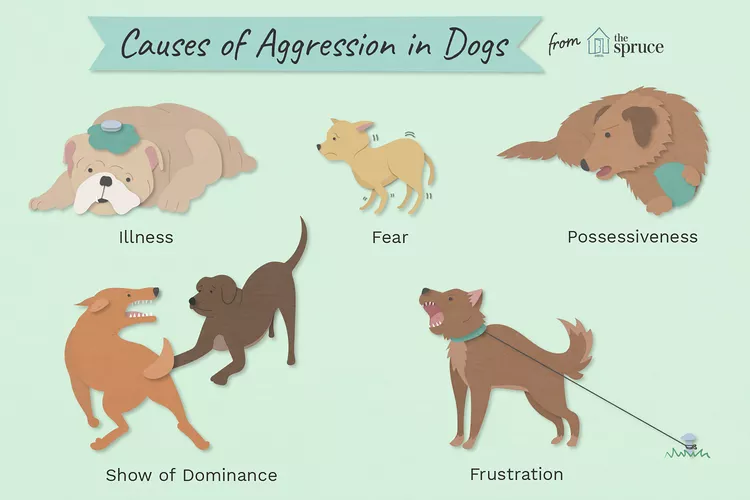
Why Dogs Get Aggressive and How to Stop It
Why is your dog biting you aggressively? Sometimes dogs can become aggressive with little warning. Find out what causes your dog to become aggressive so you can work with the behavior.
Thai Ridgeback: Dog Breed Characteristics & Care
Learn all about the Thai Ridgeback, a rare breed from Thailand. Find out how to care for the loyal dog and where to buy or adopt one.